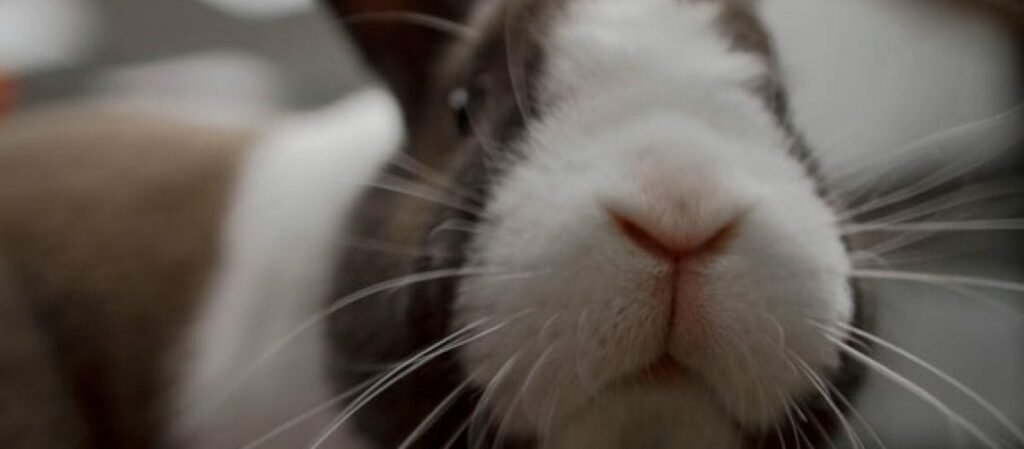Rabbits are fun and curious small mammals that love to explore! Rabbits in captivity usually weigh 1 to 10 pounds as adults and have a lifespan of 8 to 12 years. It is important to socialize rabbits when young and train them to a litter box if desired. Providing a low stress environment is key to having a happy and healthy rabbit.
Diet
A proper diet is vital to a healthy rabbit. Young rabbits 6 months and younger should have unlimited alfalfa and grass hay with good quality alfalfa-based pellets. Appropriate grass hay includes timothy, oat, and brome. Once rabbits reach 7 months, they should be transitioned to only grass hay and good quality timothy-based pellets. Leafy greens should be included at all stages of life at 1 cup per 4 pounds of body weight. Small amounts of apples, pears, peaches, carrots, and bell peppers make excellent treats but should not be primary source of nutrition. It is also recommended to limit or avoid treats high in sugar such as bananas, raisins, and yogurt drops. You should monitor to make sure your rabbit is eating consistently throughout the day. If rabbits go extended periods without eating, they can become very ill.
Habitat
It is important that rabbits also have a safe and secure cage preferably with a solid bottom. The cage should be in a quiet area with a temperature between 50 and 75 degrees fahrenheit. If temperatures reach 85 degrees fahrenheit or higher, rabbits run the risk of entering heat stress. A proper cage should be large enough that the rabbit(s) has room to explore and exercise. Because rabbits are naturally curious, it is important to keep a wary eye out to ensure anything hazardous that may be chewed on is out of reach. If using a litter box, litter should be pelleted or shredded newspaper or aspen shavings. Pine or cedar shavings should be avoided as they can irritate the respiratory tract. Items such as nesting boxes filled with hay, untreated wooden toys, cardboard boxes, and paper towel rolls are great ways to add a sense of security and safe environment enrichment.
Veterinary Care
Annual wellness and oral examinations are important to the health of your rabbit to check for overgrown teeth, dental burs, and diagnose any medical conditions early. It is recommended that rabbits be spayed or neutered between 4 and 7 months to prevent uterine cancer and urine marking. Fecals can be performed to check for common intestinal parasites. Some common medical conditions to watch for include abscess, gastrointestinal stasis, head tilt, heat-induced trauma, and respiratory distress.

